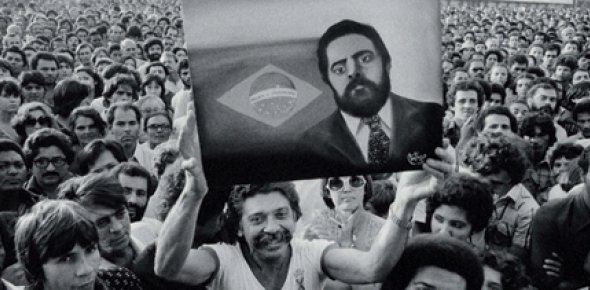Triologia das Novas Famílias + Peões
Double feature
6 Jul 2010 - 22:00
Open-Air Amphitheatre
Double feature with the films "Trilogia das Novas Famílias" from Isabel Noronha and "Peões" from Eduardo Coutinho.

Trilogia das Novas Famílias
Isabel Noronha, Mozambique
2008, Black and White, 69 min
If it still makes sense to talk of cinéma vérité – and it is not by chance that we evoke this genre defended by Godard in Mozambique in 1976 – this trilogy has every right to claim to form part of it. The film consists of three documentaries directed by Isabel Noronha (Maputo, 1964), in Mozambique, about the life of children who have been abandoned and who have lost the will to live. Yet, just as or perhaps even more important than the narratives that are constructed around these children are the characters from the local community, who decide to take care of them and support them in their day-to-day lives. In particularly difficult situations of survival, the generous and moving intervention of these adoptive mothers or sisters helps us to believe in the survival of an orphan generation and of a country that is still very young.
Peões
Eduardo Coutinho, Brazil
2004 , Colour, 85 min
In 1979 and 1980, workers from the ABC metallurgical industry in the State of São Paulo took part in a series of strikes that were to change the face of the Brazilian trade union movement, laying the foundations for the creation of the Partido dos Trabalhadores (Workers’ Party) and leading to the appearance on the national political scene of the workers’ leader Luís Inácio Lula da Silva. Peões(Pawns) is a full-length documentary about the personal history of 21 workers who took part in the events of that period, but remained relatively anonymous. In order to reach these people, the documentary filmmaker Eduardo Coutinho (São Paulo, 1933) undertook research work based on photographs and films of that time, looking for individuals who appeared in those pictures, but who had not risen up through the ranks of the trade union bureaucracy, nor become well-known politicians. He talked to almost 50 people, 21 of whom appear in the film. They talk about their origins, their participation in the movement and the directions that their lives have taken since then. They remember that period, the suffering and the rewards from their work at the factories, commenting on the effect of their political militancy on their family environments and giving their own personal views about Lula and the directions that the country has taken. Filming took place between 28 September and 27 October 2002, or, in other words, between the eve of the first round of voting in the presidential elections and the exact day of the second round, when Lula was elected President. But Peõesis therefore not about trade union leaders or professional politicians, but about workers whose militant involvement in the movement was a question of pure personal engagement and which resulted in an undeniable historical fact.
